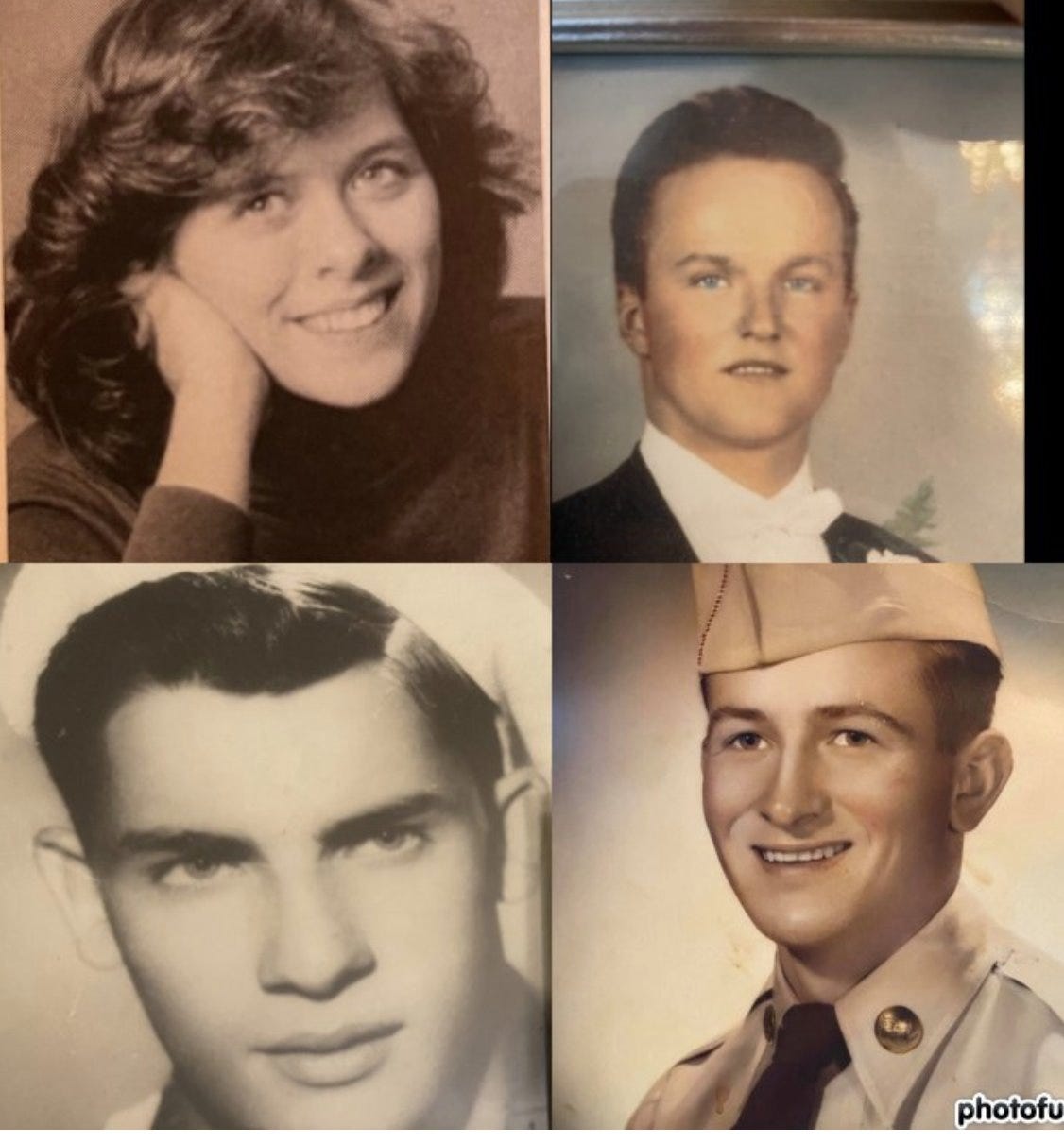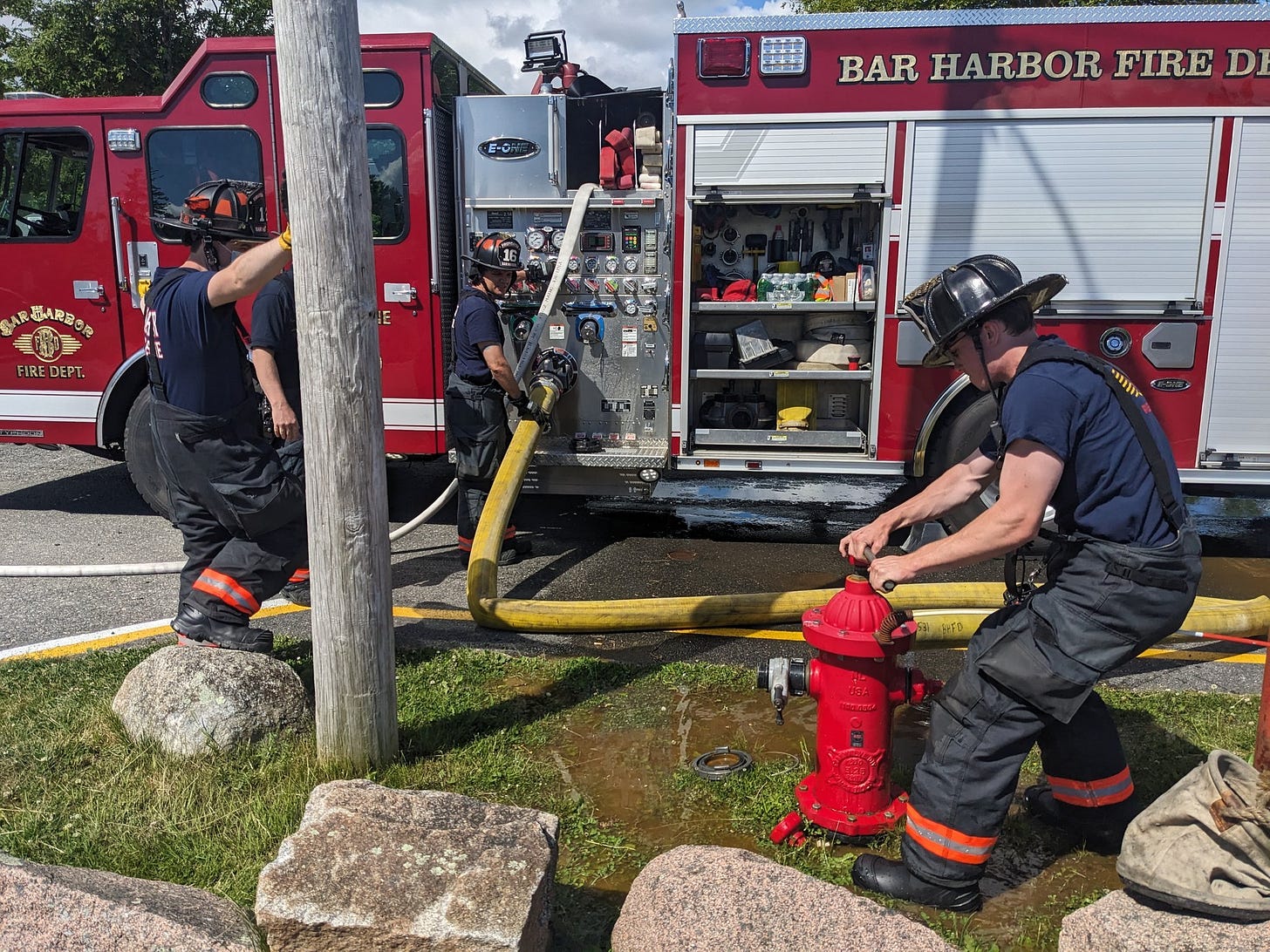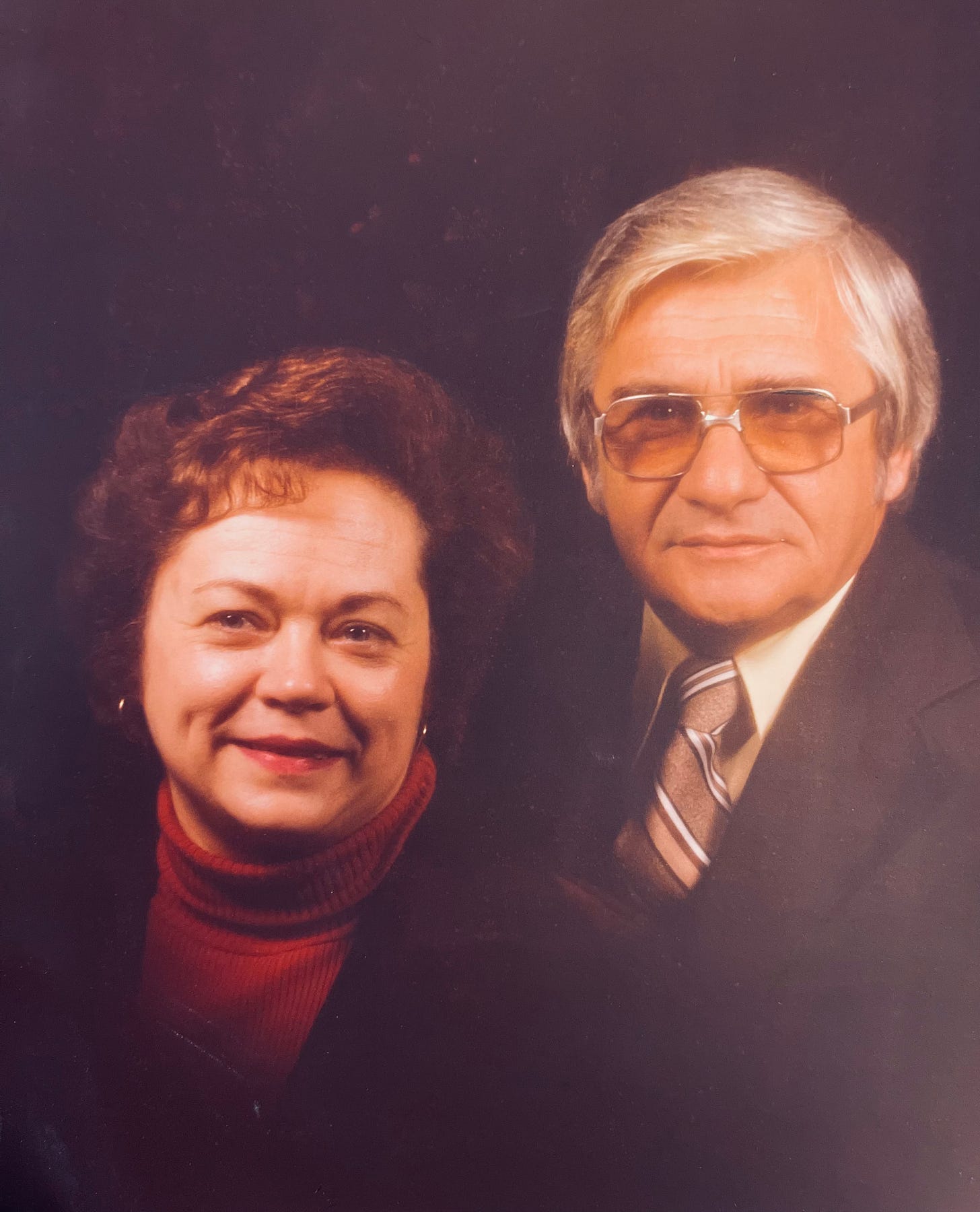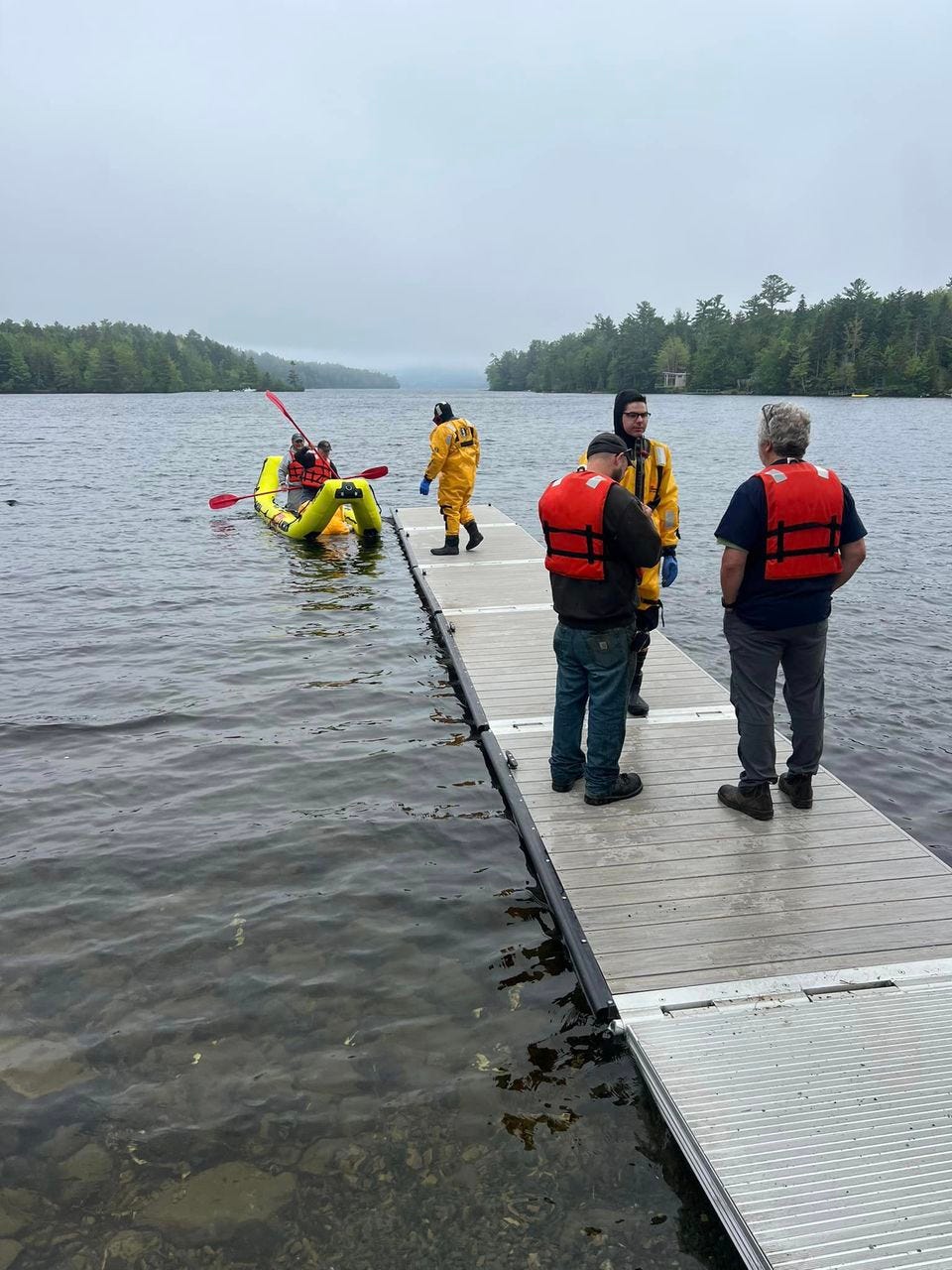
Every once in a long while, Shaun or I might write an opinion piece. These pieces aren’t ever going to be about how you should vote or that sort of thing because we believe you get to make that decision without anyone editorializing how to do that. That’s why we report on the news.
We’ll always tell you in big letters (like above) that the piece in your in-box is just that—opinion and not news. This is one of those times.
“The Daily Stoic” had an email it sent out last year on Father’s Day that talked about Marcus Aurelius’ stepfather. Marcus was one of the great Stoics whose writings and philosophy still permeate our culture.
Part of the reason for that is Marcus’ stepfather.
“The Daily Stoic” writes,
“Marcus Aurelius’s father died when he was young. But then this young boy who was cursed by tragedy received a great gift. A gift that all children who have received it know to be one of the most incredible things in the world: a loving step-father.
“Ernest Renan wrote that, more than his teachers and tutors, ‘Marcus had a single master whom he revered above them all, and that was Antoninus.’ All his adult life, Marcus strived to be a disciple of his adoptive stepfather. While he lived, Marcus saw him, Renan said, as ‘the most beautiful model of a perfect life.’
“What were the things that Marcus learned from Antoninus? He learned the importance of . . .
“. . . compassion, hard work, persistence, altruism, self-reliance, cheerfulness.
. . . keeping an open mind and listening to anyone who could contribute.
. . . taking responsibility and blame, and putting other people at ease.
. . . yielding the floor to experts and using their advice.
. . . knowing when to push something or someone and when to back off.
. . . being indifferent to superficial honors and treating people as they deserved to be treated.”
Today is Father’s Day. The first attempt to officially honor dads happened in 1908 in a West Virginia Church when 362 men were the focus of a sermon. Those men had died in the Fairmont Coal Company mines’ explosions in Monongah. It did not become a holiday.
According to History.com, “The next year, a Spokane, Washington, woman named Sonora Smart Dodd, one of six children raised by a widower, tried to establish an official equivalent to Mother’s Day for male parents. She went to local churches, the YMCA, shopkeepers and government officials to drum up support for her idea, and she was successful: Washington State celebrated the nation’s first statewide Father’s Day on June 19, 1910.
“Slowly, the holiday spread. In 1916, President Wilson honored the day by using telegraph signals to unfurl a flag in Spokane when he pressed a button in Washington, D.C. In 1924, President Calvin Coolidge urged state governments to observe Father’s Day.”
Over on my other Substack, I write a lot about my little hobbit dad, but I don’t write as much about my stepfather, John Gonçalves Palreiro. Sometimes I write about how his dark skin attracted racists when we were fishing in the middle of the New Hampshire woods and how he taught me about respecting yourself and being calm in a crisis that makes no sense. Spoiler: Most crises don’t make sense.
Sometimes I write about how he gave me my first Grover stuffed animal when I was in the hospital in first grade getting my tonsils out and how he taught me about using humor to make bad situations better. This is possibly why my joking side tends to come out when I’m moderating candidate forums.
My mom and dad loved each other when she was a teenager. She got pregnant. My nana allegedly ran him out of the state, threatening him with arrest and sent my mom to a relative’s house in Weare, New Hampshire. The baby was ill with cystic fibrosis. My mom said she was told he wouldn’t live and had no choice but to give him up.
Her heart never gave him up.
Her heart never gave up John either.
Decades later, he came back to New Hampshire. They were still in love. Every time they each heard certain songs (think Barbra Streisand, Englebert, Patsy Cline, ancient songs for ancient people), they’d think of each other. They married. I think she was his sixth wife or something wild like that.
The only time I remember them arguing was about a Portuguese meat pie and a lasagna. She thought that he liked his sisters’ recipes better than hers. This was apparently the ultimate insult.
I remember him standing in front of the picture window in the living room, trying to appease her, telling her that her lasagna wasn’t exactly the same though she’d used his sister’s recipe.
“No two cooks are alike,” he said, “even using the same recipe. That’s a good thing.”
He loved that—the difference in people. He was a contractor and a cabinet maker. His favorite stories were about people he met who created things: Grace Metalious, the woman who wrote Peyton Place, that he hung out with as a young man; John Updike who was kind to him in a bookstore; John Irving who was kind, too; Jessie Jackson, who told him stories and he told stories back.
Difference was a good thing. Creativity was a good thing, too.
He allowed me to be my nerdy tomboy self with my big glasses. He bought me a race track, a train track, taught me to ride a bike, said I didn’t have to play with Barbies if I didn’t want to, taught me to fish, track in the woods, smell ferns, hug big and long.
When I was sad because I was goofy looking and sobbed and sobbed because some boy at recess told me so, he made me sit in front of the mirror with him, surrounded in a haze of Lucky Strike cigarette smoke. and stare at myself and say, “I am pretty damn beautiful. I, Carrie Barnard, am pretty damn beautiful.”
It was my first official swear word. I was in third grade.
He knew the power of words, of how a single word can change things inside your heart. Words can do the same thing to a community.
For the next two years, whenever I came into a room, he’d say, “Here she is, Miss America.”
He died when I was in sixth grade. He had a heart attack while we were having dinner at one of his sister’s house. He was 56.
And what did I learn from him?
I learned
. . . that you can try to have grace when you’re confronted with hate and that sometimes this is tremendously hard.
. . . to love while you have time to do and to not be afraid to show it.
. . . that everyone wants to be the hero in their own story unless they give up and become the villain. Sometimes people even rejoice in that, rejoice in that conflict, they get addicted to it.
. . . treating yourself to ice cream is okay because you deserve to treat yourself.
. . . lasagna is delicious and seafood and spice are our friends.
. . . that you can find love again even when you lose it.
. . . that you get to define yourself as beautiful and remind yourself of it even when other people try to label you something else.
. . . that family doesn’t have to be blood. And sometimes? It’s better when it isn’t.
So, why am I sharing this personal piece in the Bar Harbor Story? It’s because sometimes I think when we’re in a community that is full of people who are passionate about things (the environment, way of life, budgets, cruise ships, housing, national parks, puppies, parking), we forget about the things that Antoninus taught, that my stepdad lived.
It is easy to call names. It is easy to exult in your wins. It is easy to make generalizations that hurt others, to put words in air quotes in emails, to threaten, to deride. It’s especially easy when you do so anonymously or when you’re in a position of authority.
But that’s not what community is. Disagreements? Yes! Those are absolutely important in a representative democracy. Threats? Name calling? Creating us-vs-them scenarios conflating discord into calamity? That’s what breaks communities.
Because we write the Bar Harbor Story, we get to see the best in this community. We see nonprofits coming together. Neighbors truly helping neighbors. We see businesses make fundraisers to try to help recreate a Shore Path or to support a playground or so many things. We see on-call firefighters drop everything to go to a horrifying accident or a fire. We witness students yell to teachers, “I love you!” We get to see people sing, create, dance, make festivals, make community, have ideas and be brave enough to run for office.
We see the worst, too.
But the thing is that you can know that darkness exists, greed, bias, hate, lies. And you can still choose light. You can still notice that light, too. You can choose to craft yourself and your community the way my dad and Marcus’ dad told us to. Or not. But I hope that on this Father’s Day, in honor of all those who father with grace and strength and kindness and all those who mother that way too, you might want to choose to bend toward the light.
Umberto Eco wrote, “I believe that what we become depends on what our fathers teach us at odd moments, when they aren’t trying to teach us. We are formed by little scraps of wisdom.”
This is true about fathers. It’s also true about mothers and neighbors and everyone we meet. It is a truth about us, all of us, humans. We can form each other and our community with little scraps of wisdom or soundbites of hate, but how we do form it and reform it and form it again depends on us and our choices.
If you’d like to donate to help support us, you can, but no pressure! Just click here.











This is a beautiful tribute and a reminder of so many simple truths, reminders to be kind and compassionate. Thank you so much for sharing this, and for all that you and Shaun do to help our community knit (and stay knitted) together.